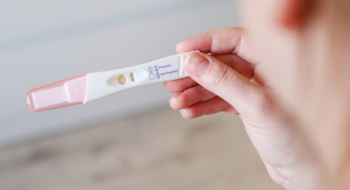If you experience vomiting or diarrhea, there’s a fairly good chance you’re ill with norovirus – the leading cause of vomiting and diarrhea in the U.S.
Commonly called the “stomach bug” or “stomach flu,” norovirus isn’t related to influenza, which causes respiratory flu. It is a group of similar, highly contagious viruses that cause inflammation of the stomach and intestines.
“It’s notorious for outbreaks on cruise ships, day care facilities – anywhere where people congregate,” says Dr. Jo-anne Klein, a fellowship-trained infectious disease specialist at Tidelands Health. “It only takes a few particles to contract the disease, so it can easily pass from one person to another.”
Year-round concern
Although it tends to be more common during fall and winter, norovirus can spread at any time of the year. In addition to gastrointestinal symptoms, the illness may also be accompanied by mild fever and body aches.
Featured Article
Anti-inflammatory diet tied to lower risk for heart disease, Alzheimer’s, cancer
Read ArticleNorovirus is the most common cause of foodborne illness in the U.S. A recent CDC study found it accounted for about half of 800 outbreaks of foodborne illness at restaurants and other food establishments from 2017-2019.
There is no vaccine to prevent illness from norovirus, and you can get it more than once. Although you may build some immune protection after an infection, it tends to wane very quickly.
Highly common
The virus causes an average of 19 million to 21 million illnesses in the U.S. each year, resulting in 2.3 million visits to outpatient medical clinics and 465,000 ER visits, according to the CDC.
Dehydration is a primary risk because of severe vomiting and diarrhea, but typically the illness passes within a few days and patients recover without medical intervention.
The virus can spread via airborne particles but is mainly transmitted by touching contaminated surfaces then touching your mouth or nose or from drinking or eating contaminated water and food.
“This is a virus that can survive in the intestinal tract,” Dr. Klein explains. “Influenza doesn’t generally do that and, unlike influenza, which we have therapeutics for, we have no vaccines or specific medications for norovirus. It resolves on its own.”
If you become ill with norovirus, it’s important to drink plenty of fluids to help stay hydrated. Be sure to get plenty of rest and eat soft, bland foods, taking small bites.
Prevention tips
Although norovirus is very contagious, you can take steps to help prevent its spread:
- Regularly wash hands thoroughly with soap and water for at least 20 seconds (hand sanitizer does not work well against norovirus).
- Wipe down objects and surfaces with a bleach-based cleanser and leave the bleach disinfectant on the affected area for at least 5 minutes.
- Wear gloves when cleaning potentially contaminated objects and surfaces.
- If caring for a sick loved one, wash hands often including before eating, preparing and handling foods.
- Always wash fruits and vegetables before preparing and eating.
- Cook oysters and shellfish, which are common causes of norovirus outbreaks, thoroughly to an internal temperature of at least 145 degrees.
- Wash contaminated clothes soiled with vomit or feces immediately.
When to see a doctor
If you’re unable to keep food or drink down for longer than two days, you may be at risk for dehydration and should see a doctor. If you become severely dehydrated, your doctor can prescribe anti-nausea medication or order intravenous fluids to treat dehydration. In case of emergency, always call 911.
“The best protection is to wash your hands properly and thoroughly,” Dr. Klein says. “It’s hard to stress that enough – washing your hands can help protect you against norovirus and many other illnesses out there.”

Dr. Jo-anne Klein
Tidelands Health Infectious Disease Specialist
Call to Schedule
Bio
Dr. Jo-anne Klein is a fellowship-trained infectious disease physician at Tidelands Health.
Learn MoreMedical Education
Education
- University of the Philippines
- Master’s Degree in Epidemiology University of Pittsburgh
Residency
- Cleveland Clinic
Fellowship
- University of Pittsburgh Medical Center
Awards
Board Certifications
- American Board of Internal Medicine, internal medicine and infectious diseases
Meet the Expert
Dr. Jo-anne Klein
Call to Schedule
Dr. Jo-anne Klein is a fellowship-trained infectious disease physician at Tidelands Health.








